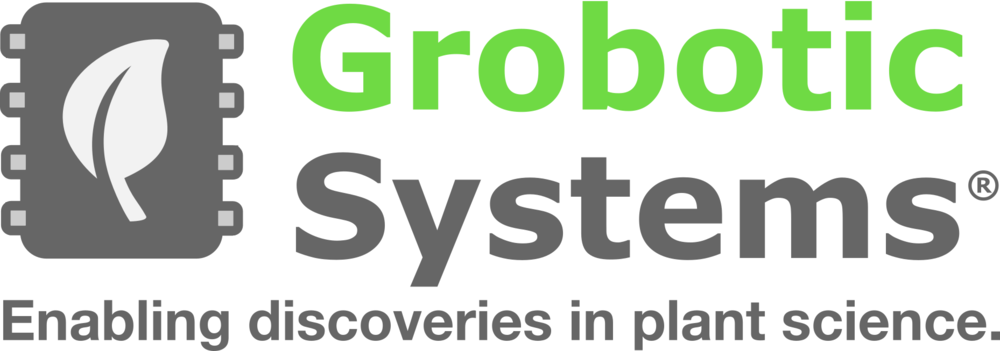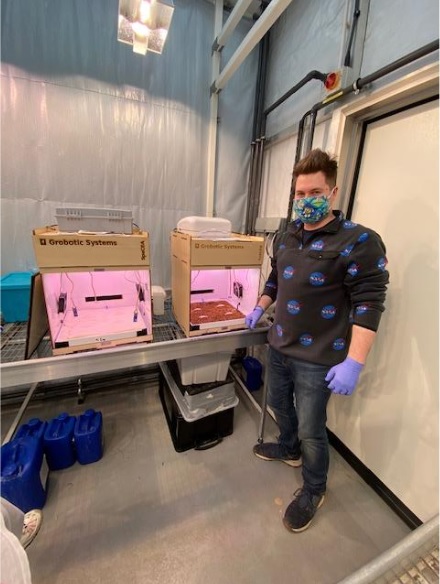Luke undertook his PIPS placement with Grobotic Systems, a small Sheffield-based start-up that builds bespoke next-generation plant growth cabinets for research, with input from Jacob Torres, the founder of the Space Chile Grow a Pepper Plant Challenge.
The featured image is of the Grobiotic Systems’ logo.
What did you do?
My placement was partly remote, partly run at Grobotic’s workshop and partly at the University of Sheffield. I carried out the placement part-time over the course of 12 months.
During my placement we created the ‘SpaCEA project’ (Space Controlled Environment Agriculture), and I designed and constructed a series of plant growth cabinets that replicate NASA’s advanced Plant Habitat (APH), for use both in ground-based space plant research and as tools for outreach, illustrating the similarities between plant growth technology used in space and that being developed on Earth to improve food security.
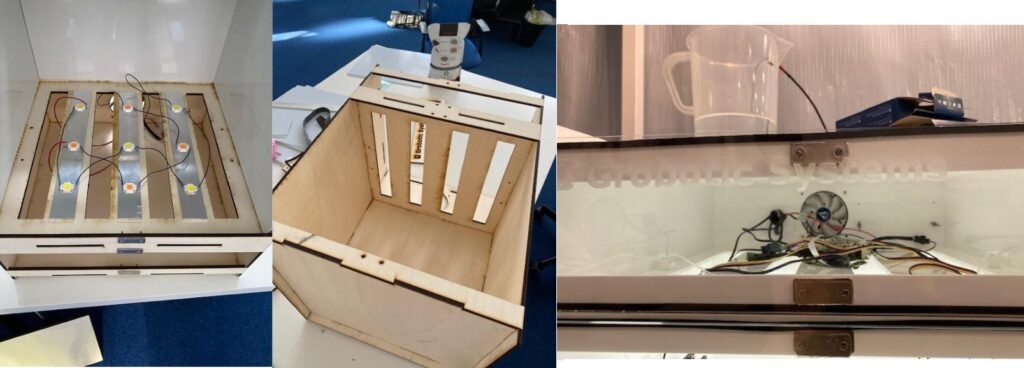
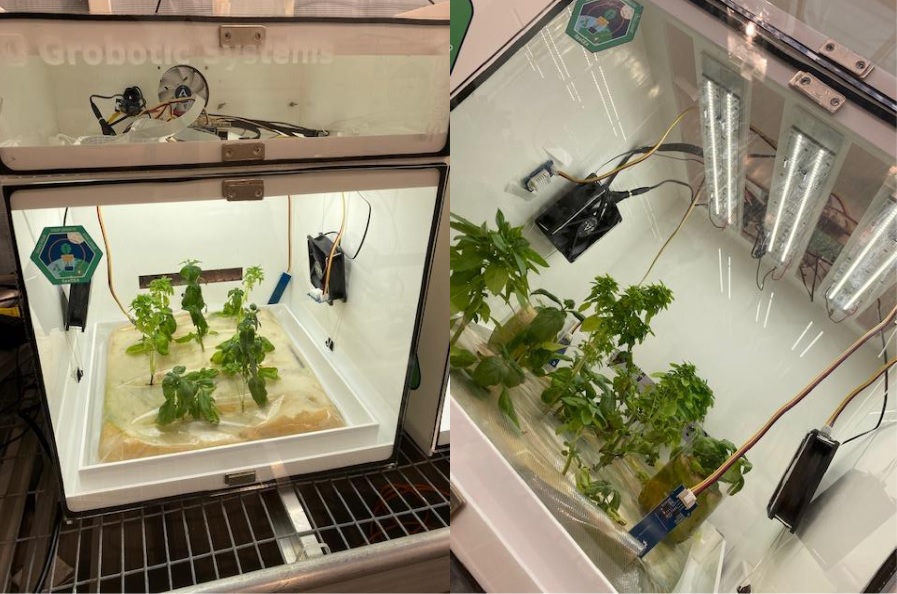
I had the opportunity to apply for a pump-priming grant from The University of Sheffield’s Institute for Sustainable Food which I was successfully awarded and was awarded additional funding by the institute to produce a podcast and short animated film highlighting the similarities between crop growth in space and on Earth.
I also had the opportunity to work closely with the University of Sheffield’s public engagement team and have exhibited the cabinets and film at their Pop-Up University event in Sheffield city centre, and most recently at the Institute’s ‘Feeding the world without costing the Earth’ launch event at The Royal Society in London.
The cabinets are now being used to test the performance of a polyurethane foam developed in Sheffield as a growth substrate compared to NASA’s current growth substrate, and I was intimately involved with the design and setup of this experiment, which will also test the potential of the cabinets for this type of research.
We have also created an outreach challenge called the Space Foam Crop Growth Challenge as a spin-off of the PIPS and this experiment, which we hope will run over the next year.
What made you want to do that particular placement?
I have long been interested in plant growth in space and would like to work in the field after completing my PhD. Because it is a relatively small field, I wanted to use my PIPS as an opportunity to gain experience in the area. I am an aspiring astronaut and recently applied for the latest ESA call for astronauts, and I hoped that this placement would enhance my application and any future applications that I make.
Prior to securing this placement, I had originally been in contact with NASA about carrying out a placement at Kennedy Space Center, but unfortunately COVID made this impossible and I was forced to look for alternatives.
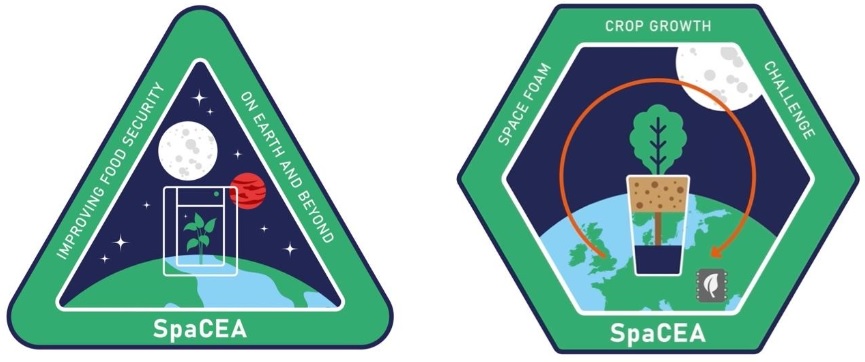
How did you go about finding and planning your PIPS?
The placement came about after discussions with Jacob online through the Space Chile Challenge and through connecting with Alexis at Grobotic Systems via colleagues in my PhD lab. Between us we came up with a placement that would be spread across remote working and using the facilities available in Sheffield, while also exposing me to a different work environment at Grobotic Systems where possible. We agreed a flexible, part-time placement would be most suitable in case COVID changed plans and to best fit in with my PhD work, where I was about to run a large-scale experiment that was time sensitive.
What have you gained from doing your PIPS?
I thoroughly enjoyed my PIPS and it gave me the opportunity to communicate and network with scientists and engineers working in space plant biology, which is key to my career aspirations. I had the opportunity to learn about and actively engage in space plant biology, in addition to learning a host of new and useful skills including how to design hardware, how to program Raspberry Pi-based systems, and how to wire up electronic components.
I was able to write a small grant application and liaise with the Institute for Sustainable Food and the public engagement team to create the necessary material and organise the setup of our exhibitions for various events, which requires a lot more work than I had expected!
I was able to experience first-hand the challenges and rewards of working at a small start-up and having numerous opportunities to engage both the public and other researchers in the work that we were doing gave me new ideas to apply to increasing visibility of my PhD work.
How would you sum up your PIPS experience?
My PIPS was an unforgettable experience. To contribute even in a small way to a field I am very passionate about was a dream come true, and I had the chance to work with many different people and in many different areas that I wouldn’t otherwise have had the chance to as part of my PhD.
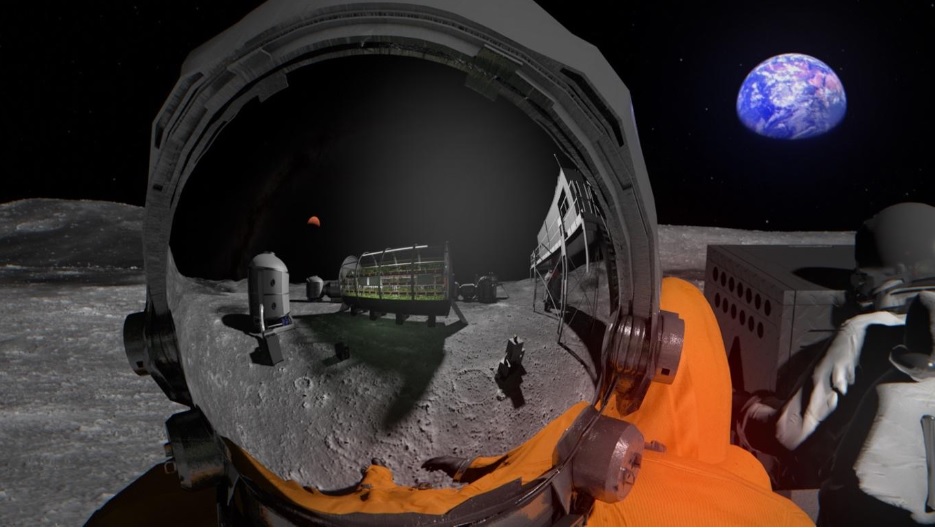
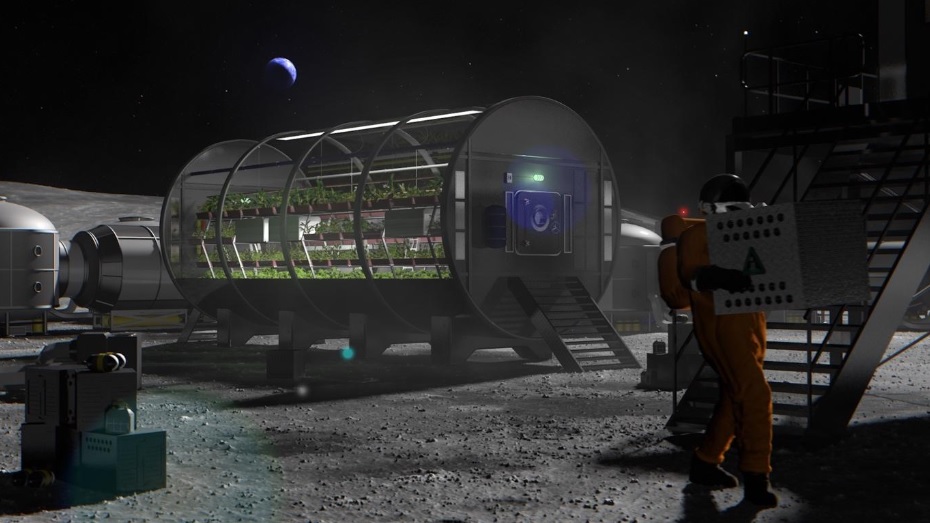
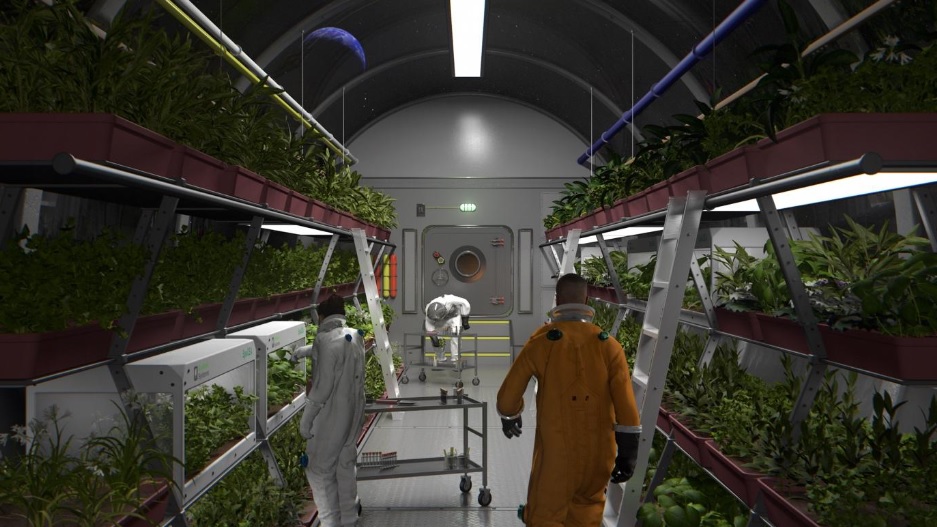
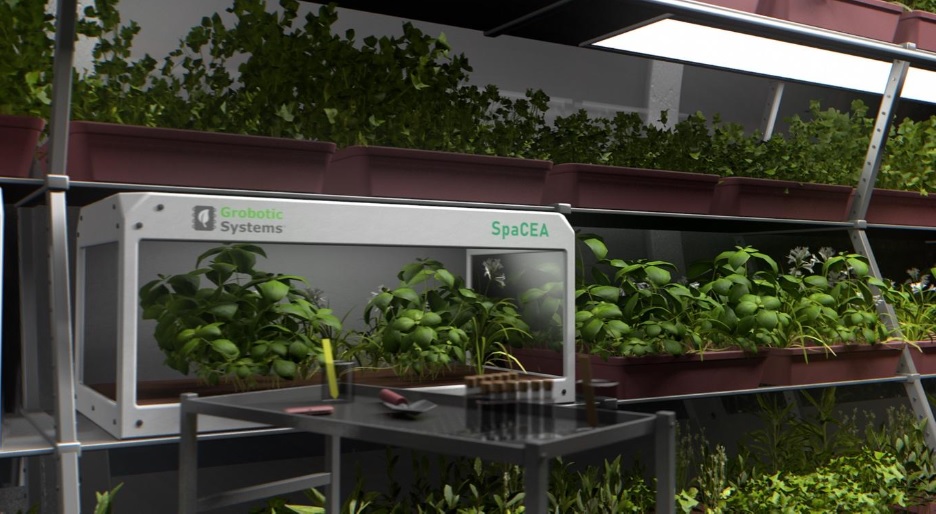
What advice would you give to other PGRs about PIPS?
Think outside the box. My PIPS was unconventional in almost every sense – adapting a PIPS during COVID was not easy but eventually allowed me to do a fantastic placement. Doing the placement part time not only helped me better accommodate the PIPS around my PhD, but also gave me more opportunities during my placement in the long run.
If there is a particular field/type of placement you would like to do, the best thing to do is find and contact those in the field/organisation – while some placements are advertised, many have not taken on PIPS placements before, but you will be surprised how many are willing to take you on.

